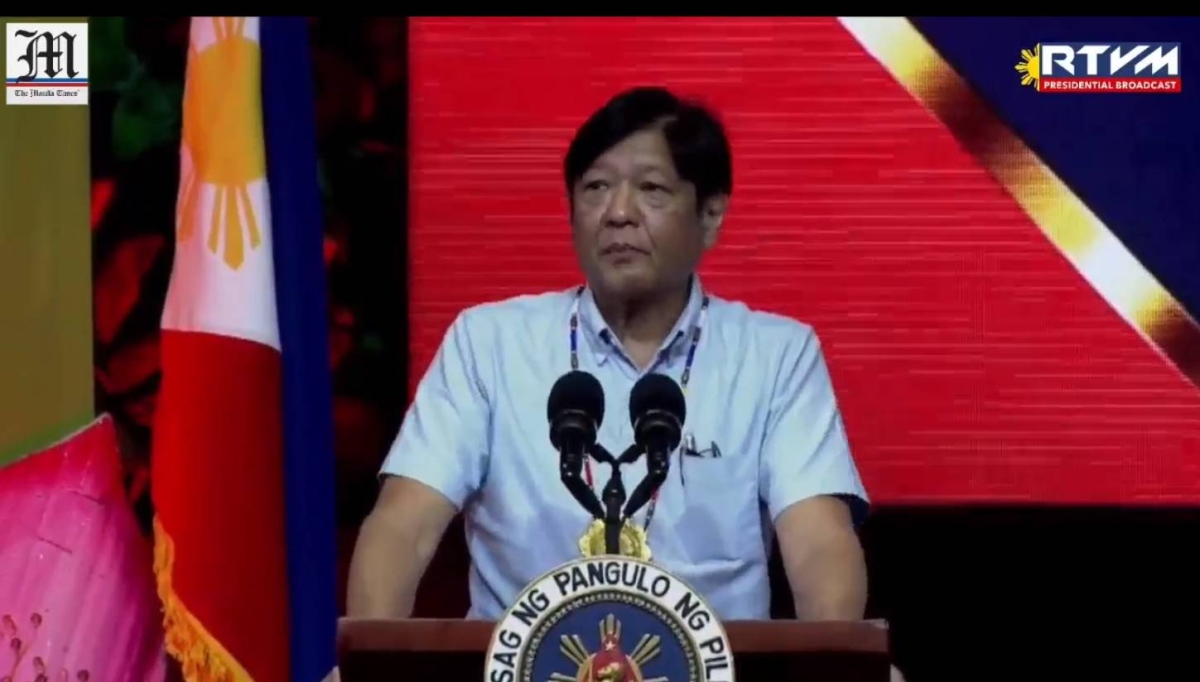MANILA, Philippines: In a firm stance, President Ferdinand Marcos Jr. reiterated his rejection of calls to separate Mindanao from the rest of the country. Speaking at the Constitution Day celebration, he emphasized that such a move would be a grave violation of the Constitution and ultimately doomed to fail.
During the event organized by the Philippine Constitution Association and the Manila Overseas Press Club, President Marcos expressed his duty as the elected leader to preserve and defend the Constitution. He emphasized the importance of executing the fundamental law of the land.
In his address, President Marcos appealed to all concerned parties to halt the call for a separate Mindanao, underscoring the constitutional implications of such a move. He stressed that this proposal is not only a false premise but also a sheer constitutional travesty. He pointed out that even the current leadership of the Bangsamoro Autonomous Region in Muslim Mindanao (BARMM) and other political leaders in the region have rejected this preposterous idea.
President Marcos further highlighted that this attempt at secession contradicts the vision of the “new Philippines” that his administration is striving to create. He expressed concern that such a move would pose a threat to the unity and integrity of the beloved Philippines.
It is essential to understand the context of this statement within the Philippine political landscape. Mindanao, the second-largest island in the Philippines, has long been grappling with separatist movements and armed conflicts. The call for a separate Mindanao stems from historical grievances and aspirations for self-governance.
However, President Marcos’s rejection of this proposal is grounded in his commitment to upholding the Constitution. The Constitution of the Philippines serves as the foundation for the governance and unity of the nation. By rejecting the call for separation, President Marcos emphasizes the importance of preserving the territorial integrity and national identity of the Philippines.
President Marcos’s appeal to halt the call for a separate Mindanao echoes the sentiments of many Filipinos who value the unity and diversity of their country. Mindanao, like other regions in the Philippines, contributes to the cultural, economic, and social fabric of the nation. The President’s rejection of secession attempts aims to foster a sense of national unity and solidarity.
It is worth noting that the President’s remarks align with the legal framework of the Philippines. The Constitution explicitly outlines the territorial boundaries and the process for any changes to the country’s political structure. Any attempt to separate Mindanao without following the constitutional procedures would be considered a violation of the nation’s legal framework.
President Marcos’s emphasis on the failure of such a secession attempt is rooted in the practical challenges and potential consequences of dividing the nation. Separating Mindanao from the rest of the country would likely lead to complex issues related to governance, security, and economic stability. The President’s rejection of this proposal is a recognition of the potential risks and difficulties associated with such a drastic change.
As the leader of the nation, President Marcos’s commitment to preserving the unity of the Philippines is a reflection of his responsibility to the Filipino people. By rejecting the call for a separate Mindanao, he underscores his dedication to upholding the Constitution and ensuring the stability and progress of the entire country.
In conclusion, President Marcos Jr.’s rejection of calls for Mindanao’s separation serves as a reminder of the importance of unity and adherence to the Constitution. His appeal to halt the secession attempt is grounded in his commitment to preserving the territorial integrity and national identity of the Philippines. By emphasizing the potential failure and constitutional violations associated with such a move, President Marcos underscores his dedication to the stability and progress of the nation as a whole.







